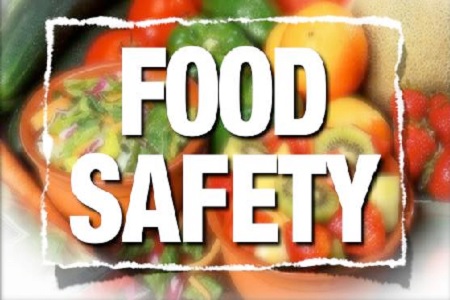“How many individuals at a church or community organization need to take the Food Safety Course offered by the PEI Department of Health and Wellness? Does everyone who is handling food need to take the course?”
Resolution
Please contact Environmental Health at the Chief Public Health Office at 902-368-4970 or email to envhealth@ihis.org to discuss how the food premise regulations may apply to your business/organization or activity/event as well as options for meeting food safety requirements.
Upcoming food safety course are listed here on the government website.
Based on the Chapter P-30-1 Public Health Act – Food Premises Regulations section 24. (2) “at least one employee present in the food premises when food is being processed has successfully completed a food hygiene training program recognized by the Director.”
However, in section 2. exemptions are noted for low-risk food:
- “low-risk food” means food that is unlikely to contain pathogenic micro-organisms or toxins or will not support the growth of pathogenic micro-organisms or the production of toxins
- Examples of low-risk food include: bread, rolls, loaves, sweets, preserves.
Exemptions include:
- 2. (1)(a) “food preparation areas in a private residence where low-risk food is prepared for sale or sold to the public as part of a non-profit activity; “, and
- 2. (1)(p) “food premises owned, operated or leased by religious organizations, service clubs and non-profit organizations where low-risk food is prepared or served by volunteers for functions or gatherings of the religious organization, service club or not-forprofit organization.”
So, in summary, this means at a church or community organization that is serving food that is NOT low-risk must have one person present at all times who has successfully completed the food safety course when the food is being prepared or served at the organization premises. This means at least a few people should have the course at an organization so that someone can always be present who has it. Their food safety course certificates should be displayed at the organization premises. They need to take the food safety course again at least every 5 years. Also the person who has the food safety training needs to train / instruct those who don’t so they handle food safely.
24.
- (1) A license holder shall successfully complete a food hygiene
training program recognized by the Director. - (2) A license holder shall ensure that, while the license holder is
absent from the food premises, at least one employee present in the food
premises when food is being processed has successfully completed a
food hygiene training program recognized by the Director. - (3) Any person in a food premises who comes in contact with food or
food contact surfaces shall be trained or instructed in food hygiene to a
level appropriate to the activity that the person performs and shall
provide confirmation of the training or demonstrate the level of safe food
hygiene knowledge necessary to carry out the person’s activities to a
public health official on request. - (4) A license holder and a person referred to in subsection (2) shall
complete an additional food hygiene training program at least once in
each 5-year period following their initial fulfilment of the requirements
of this section. - (5) The certificate or other proof that a license holder and a person
referred to in subsection (2) have completed the required food hygiene
training program shall be posted in a location in the food premises where
it can easily be checked by a public health official. (EC616/14)
References
- Food Safety Program
- The primary goal of this program is to prevent food borne illness through consultation, education and enforcement of regulations.
- Detailed inspections of all food premises in the province (approximately 1200 – including grocery stores, slaughter houses, eating establishments, and licensed premises) are performed on a regular basis.
- Public education (both on-site at establishments and formal classroom training) is an integral part of the food protection program. This program also involves investigating complaints and suspected food poisoning cases.
- FREE FOOD SERVICE SAFETY COURSE 2016 – no courses scheduled as of Jan 25, 2016
- To register, contact Environmental Health at 368-4970 or jlmaccormac@ihis.org
- “You are invited to attend a food service safety course, leading to a FOOD SERVICE SANITATION CERTIFICATE. Presented by a Certified Public Health Inspector, the course features multi-media presentation on safe food preparation, how food poisoning happens, and how it can be prevented.”
- “Participation will help:
- Prevent food preparation mistakes that lead to disease outbreaks and possible damage to operator reputation.
- Give staff and management confidence that food handling practices are in keeping with recommended practices.
- The course will appeal to:
- Food service operators and staff as well as the general public.
- Non-profit community organizations and church groups that prepare food.“
- Questions and Answers for Food Premises Regulations
- Q. What training requirements are necessary to work in the food service industry?
- A. Currently you can be employed, own or operate a food premises in PEI with no mandatory
food safety training. The new regulations will require the owner/operator or an onsite
employee to have a recognized food safety training course on site while food is being
prepared. This requirement is delayed coming into force until April 2016 to allow businesses to train
appropriately. More information on food safety training requirements will be posted to the
website early in 2015.

Question: Can Potato salad be made at home and then transported to church supper, if it meets all refrigeration and handling guidelines or should it be made onsite at the participating church supper function?